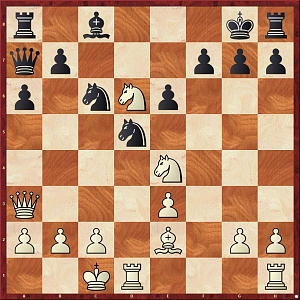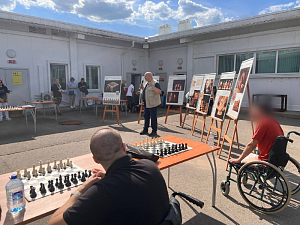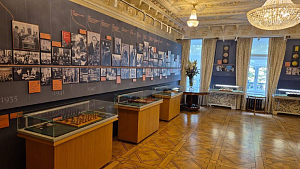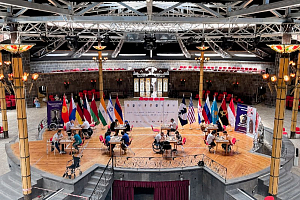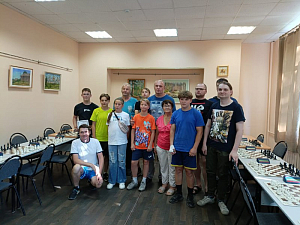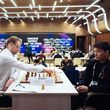Person of day - 10 AUGUST 2023
FRANK MARSHALL
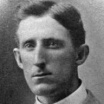
He was called the Don Quixote of Chess and the Juggler of Combinations. Both of these were accurate. Frank Marshall resembled Cervantes’ hero with his altruistic love of chess- in the heat of battle, he was ready to fight anyone, even windmills. And he could “juggle” combinations like few others. His games were full of artistic designs and cunning traps.
His first success was victory at a Chess Congress in London in 1899. A year later in Paris, he split 3rd-4thplaces with Marozzi and inflicted Lasker’s sole defeat. This triumph, as well as victories at tournaments in Scheveningen, Nuremberg and Paris enabled Marshall to challenge Lasker for the world championship. The world champion accepted the challenge and celebrated a convincing victory having won 8 games and made 7 draws with no losses.
Marshall’s heavy defeat did not undermine his confidence and he continued to perform strongly in matches and tournaments. The American grandmaster was the first to appreciate Capablanca’s genius when he lost a match to him in 1909 in largely the same fashion as he lost to Lasker- 8 defeats, 1 victory and 14 draws. However, four years later, he won a tournament in Havana that was attended by Capablanca and Yanovskiy. To add to that, he won tournaments in Dusseldorf, New York (twice) and Hastings, as well as three matches against Yanovskiy and matches against Teichmann, Mieses and Duras. In 1925, he played at the first international tournament in Moscow and came 4th, behind Bogoljubov, Lasker and Capablanca. Overall, Marshall played in 60 tournaments and 23 matches, winning 15 of the latter.
He constantly looked for something new in chess, playing with a sharp and risky style based on a belief that the best form of defence is attack. Marshall’s original ideas have been reflected in several openings. His most famous invention is the Marshall counter-attack, which remains relevant to this day and which he first used against Capablanca in New York in 1918. Marshall’s name also signifies variants in the Queen’s Gambit and the French Defence.
Marshall did a lot to promote chess in America. In 1915, he founded a chess club in New York, which he led to his dying day. The club continues to carry the name of the remarkable American grandmaster, who wrote that “My whole life is devoted to chess. I played the game for more than half a century…and I remain in love with chess today just as I have been all these years.”














